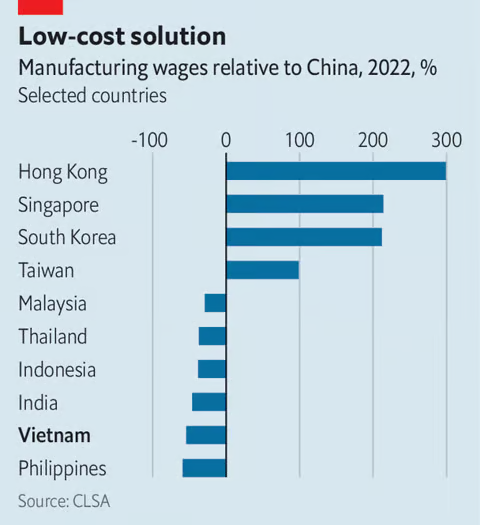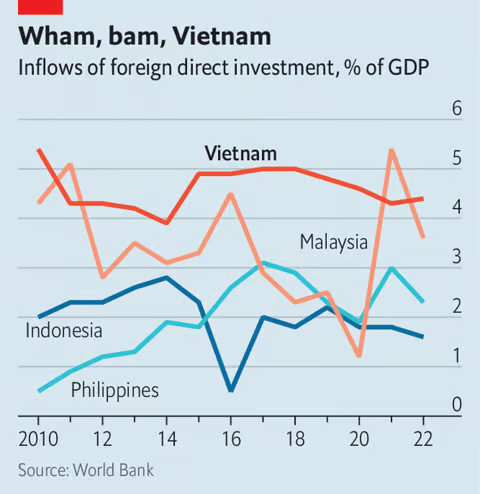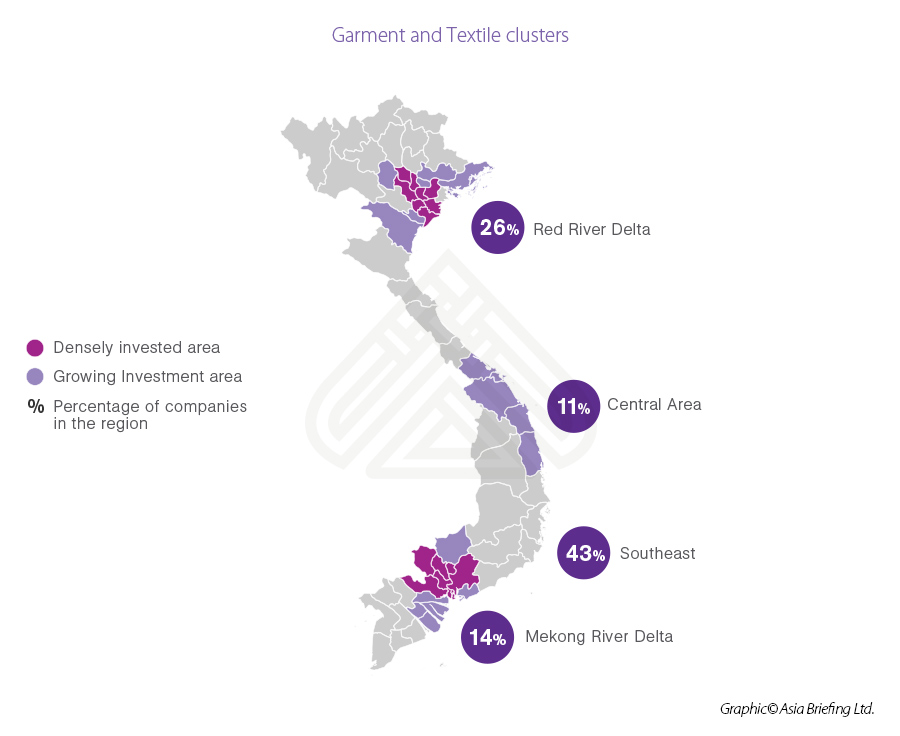Vietnam has become a major participant in the global sourcing market and is attracting interest from companies searching for dependable manufacturing options. A number of variables that have made Vietnam an especially desirable hub for a variety of sectors are responsible for this transformation.
What Makes Vietnam Good for Sourcing
Vietnam is a strategic choice for businesses due to its mix of low costs, skilled workforce, and government incentives. The competitive labor market is one of its main attractions. Vietnam’s wages are still more affordable than those of its neighbors, such as China, where manufacturing prices have increased over time. But quality isn’t sacrificed in order to get this wage advantage. The labor force of the nation is renowned for its flexibility and increasing level of technological competence.
Furthermore, the Vietnamese government has taken the initiative to foster an atmosphere that is conducive to business. Establishing operations is made simpler for foreign corporations by trade agreements, tax benefits, and expedited procedures. Notably, trade barriers have been lowered and new markets have been opened up by free trade accords like the Comprehensive and Progressive Agreement for Trans-Pacific Partnership (CPTPP) and the EU-Vietnam Free Trade Agreement (EVFTA).

Source: The Economist
Supply Chain Diversification
As a result of recent international events, supply chains should be more diversified, and Vietnam is now an essential component of that approach. Vietnam offers a competitive option for businesses who had previously placed a high priority on manufacturing in China without having to make substantial changes to their supply chain infrastructure. Its advantageous location in Southeast Asia and proximity to important shipping routes facilitate the transportation of commodities to important markets in Europe, North America, and Asia.
Furthermore, Vietnam’s port infrastructure has significantly improved, enabling more effective import-export procedures, especially in Ho Chi Minh City and Hai Phong. Ongoing investments in transportation networks, such as the road and rail networks that link industrial zones with ports and airports, further reinforce these logistical advantages.

Source: The Economist
Industry Specializations in Vietnam
Vietnam’s manufacturing industry is varied, but several sectors are particularly noteworthy. For instance, the manufacturing of electronics has expanded quickly, with international tech companies setting up plants in the nation. A number of corporations have selected Vietnam as the location for their manufacturing activities, including Samsung, Intel, and LG.
Additionally, clothing and textiles remain a vital component of Vietnam’s industrial capacity. The country has built a reputation in this field and is renowned for creating fashionable clothing at affordable costs. In addition, there has been a noticeable expansion in the footwear sector, with international companies now purchasing their goods from Vietnam.
Vietnam has also been growing in high-value manufacturing industries in recent years, such as furniture and automotive components. Businesses from a variety of sectors are drawn to the country as its production capabilities advance and they seek for solutions beyond merely low-cost manufacturing.

Source: Vietnam Briefing
Environmental and Social Considerations
Vietnam has made progress in complying with international labor and environmental norms, which is becoming more and more crucial for businesses that must guarantee ethical sourcing methods. In order to encourage sustainable growth, the government has passed legislation and regulations that guarantee fair labor standards and lessen their negative effects on the environment.
The increased demand for sustainable supply chain solutions from organizations and consumers is in line with the focus on responsible production. Vietnam’s CSR initiatives are contributing to the establishment of trust with businesses that place a high priority on CSR.
Challenges and Opportunities of Sourcing in Vietnam
Despite all of Vietnam’s benefits, there are several obstacles that companies may need to overcome. Even with improvements, certain regions still have problems with infrastructure, especially in rural areas where manufacturers are situated. Production schedules may be impacted by power outages and sporadic logistical obstacles. Ongoing investments and infrastructure initiatives, however, have the objective to solve these problems and enhance the general business climate.
The growing need for trained workers is another reason. Although most people in the workforce are regarded as competent, there may be a scarcity of highly skilled workers in certain high-tech businesses. Having said that, in order to create a labor pool that is more skilled and will ultimately benefit businesses, both the public and private sectors are funding education and training initiatives.
These difficulties are surmountable for companies wishing to source from Vietnam if they have the appropriate local connections and take a calculated strategy. Risks may be reduced and operations can run smoothly by forming connections with local suppliers, comprehending area dynamics, and taking advantage of the expanding industrial zones.
What Are Vietnam’s Prospects as a Sourcing Hub?
Vietnam’s prospects as a worldwide hub for sourcing are bright. More businesses are beginning to look at Vietnam as a key component of their manufacturing strategy as supply chains continue to change. The nation’s versatility, together with its advantageous economic policies and strategic location, make it a competitive option for companies seeking to maximize their sourcing initiatives.
We at Source One are aware of Vietnam’s enormous potential. Our ability to assist businesses in navigating the sourcing environment thanks to our expertise operating across Southeast Asia guarantees effective supply chain management and outstanding results. Through meticulous supplier selection and ongoing performance monitoring, our goal is to provide flawless operations for clients while upholding cost-effectiveness and quality control.
Vietnam’s position will only become more important as global sourcing continues to change, and we are here to help companies take advantage of these possibilities.
